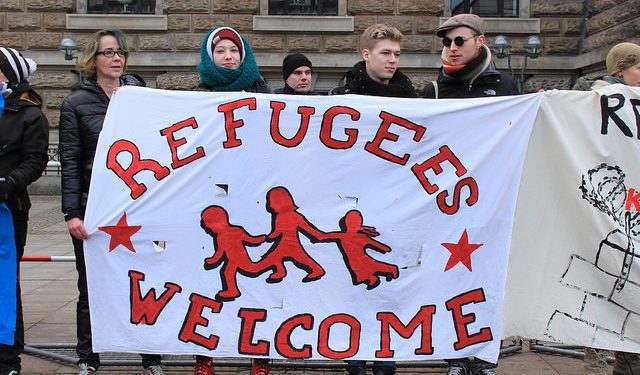European countries were underprepared to integrate refugees into their higher education systems in the aftermath of the 2015 humanitarian crisis, according to a report commissioned by the European Students’ Union.
News and business analysis for Professionals in International Education
Have some pie!
European educators caught short in humanitarian crisis, ESU says
 Despite outlining initial barriers and problems, the report is optimistic they will serve as starting points to help increase access for refugees to European higher education. Photo: Flickr/RasandeTyskar
Despite outlining initial barriers and problems, the report is optimistic they will serve as starting points to help increase access for refugees to European higher education. Photo: Flickr/RasandeTyskar The Refugees Welcome? report, which examined support systems in Germany, Flanders (the Flemish-speaking region of Belgium), Romania and Norway to measure Europe’s performance, found inadequacies created several barriers to refugees’ access to higher education.
Most countries were found to rely on adapting pre-existing policy tools rather than use those designed specifically for refugees.
“Despite almost two decades of work, higher education systems still leave many people behind and refugees, due to their unique socioeconomic situation, are a particularly vulnerable group that states should take responsibility for,” the report observes.
“Refugees… are a particularly vulnerable group that states should take responsibility for”
“When reviewing how the four countries implemented policy solutions… it becomes clear that the policy-making style has been mainly reactive.”
Of the barriers identified in the report, legal status, recognition of previous study, language skills, appropriate social support, and cultural integration were the most limiting, with recognition of study particularly highlighted.
Difficulties in recognising previous study came despite the ratification of the Lisbon Recognition Convention in 1997 – an agreement between Council of Europe members and some non-member countries to recognise each other’s higher education study. The deal has provisions specifically for refugees and displaced people.
Karolina Pietkiewicz, one of the report’s authors, told The PIE News that while many countries are now trying to meet LRC requirements, many of those systems were implemented because of the 2015 humanitarian crisis, and were unable to cope with the more than one million people who sought refuge in Europe during that time.
Operational challenges that came from the swell in numbers meant many refugees experienced difficulties in getting information on how to continue their education, the report found.
“Raising awareness and information provision are the key,” Pietkiewicz said.
“Refugees who come to any new country have limited knowledge about the higher education system,” she added. “On top of that very often the procedures are complex and lengthy enough to contribute to a negative decision on whether to pursue academic degrees.”
Decentralised systems, such as those in Germany and Flanders, whose states and provinces run independently of each other, can create further challenges for refugees trying to access education.
The report noted many states and regions had their own procedures, requiring refugees navigate multiple systems.
Only reactive measures in larger countries, such as Germany, were successful in effectively remodelling pre-existing policy tools and structures to integrate refugees into higher education.
Norway’s trial Qualifications Passport for Refugees and the subsequent European Qualifications Passport, which aims to provide recognition of skills to newly arrived refugees missing documentation, was highlighted as a possible solution and a means to provide a centralised system.
“We believe that the current efforts will serve as lesson learnt and will be useful for the future”
ESU vice president Liva Vikmane said the impact of the passport would be clearer in the coming months, after the first round were issued to refugees in Greece earlier this year.
“What we can say for certain is that we need new ideas to facilitate the recognition processes by shortening the time of procedures and help the evaluators to assess the qualifications,” she said.
Despite the barriers and initial problems, ESU’s report was upbeat on the future of refugee access to European higher education, arguing that comparing the positives and negatives of countries will contribute to improving services.
“We believe that the current efforts will serve as lesson learnt and will be useful for the future,” Vikmane said.
“The current influx of individuals seeking asylum triggered many initiatives and the capacity and experience built upon that will certainly pay off in the future,” she added.
“We are quite confident it will contribute to the general debate about inclusion in higher education policies and immigration policies of the countries.”
Still looking? Find by category:


